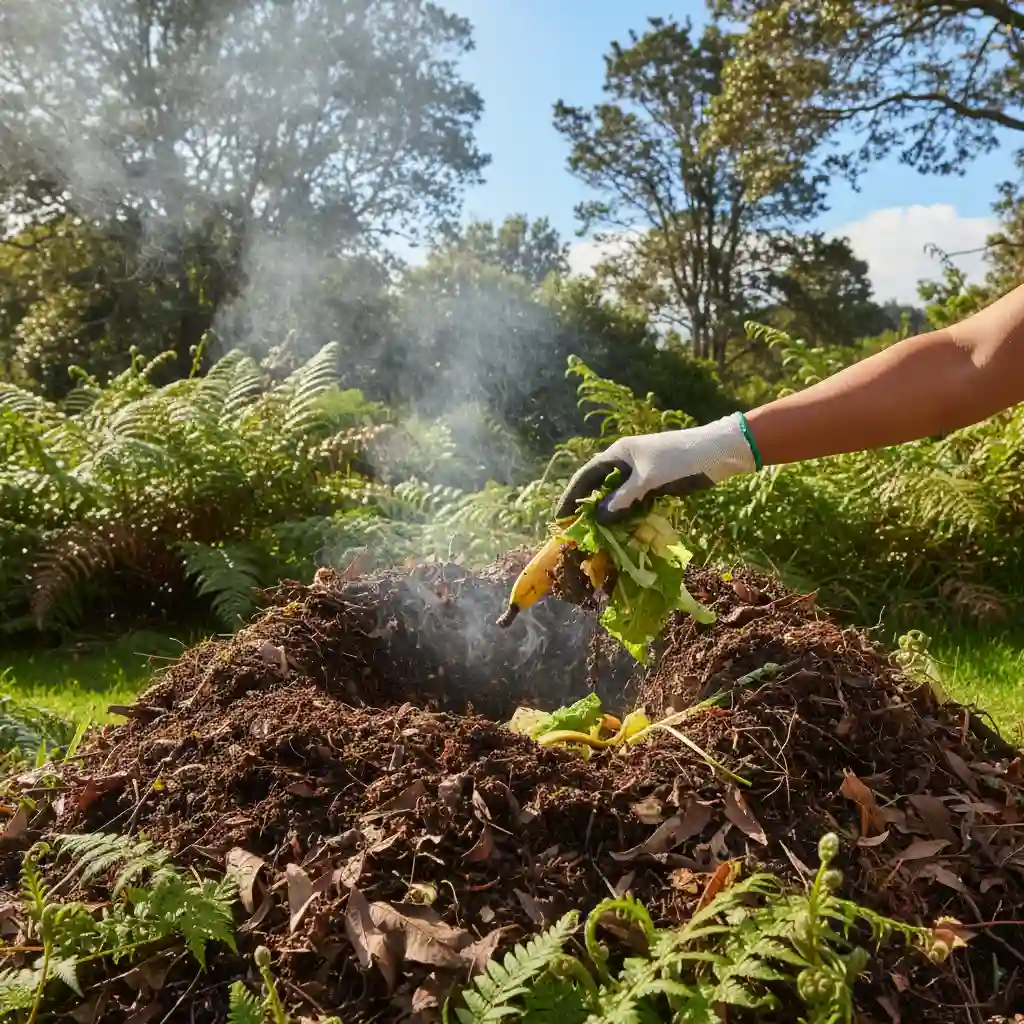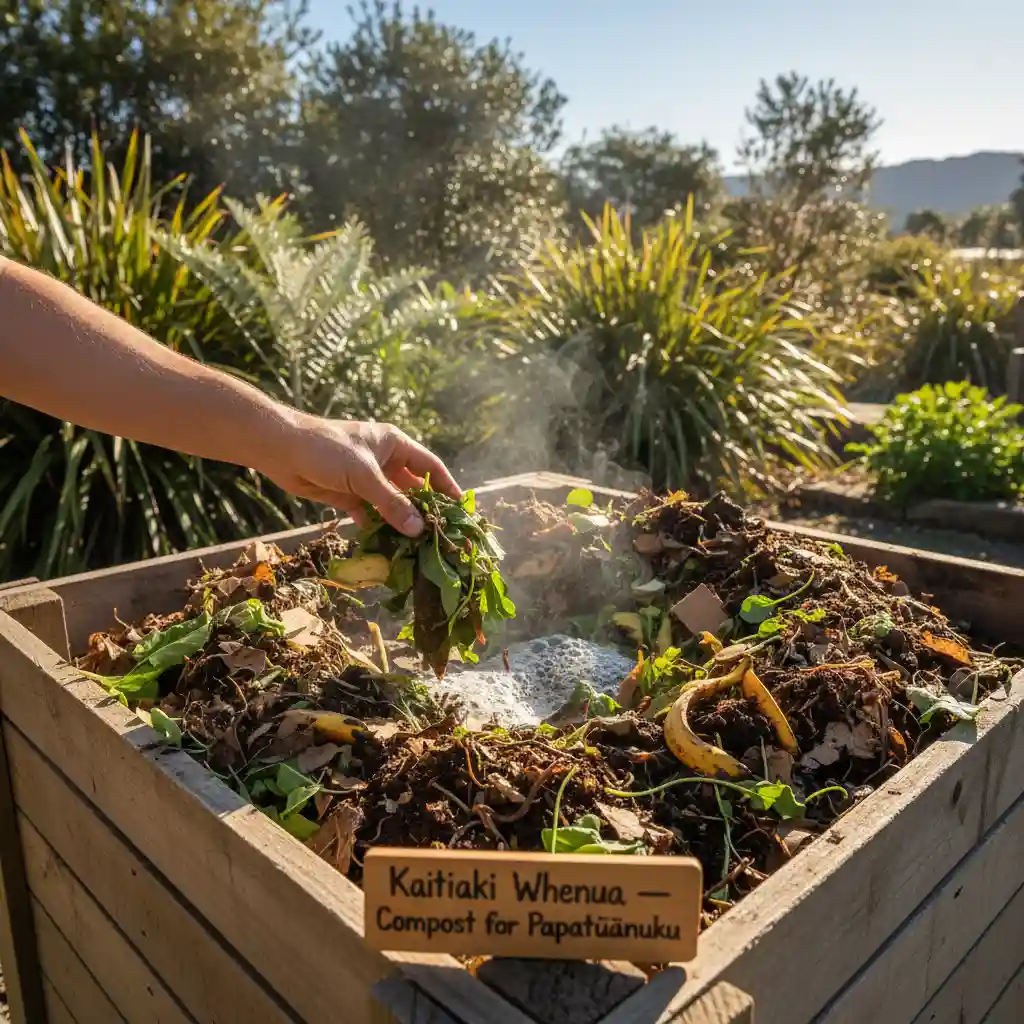Sustainable Composting Methods for NZ Gardens
Transforming kitchen scraps and garden waste into nutrient-rich gold is not just good for your plants; it’s a cornerstone of a sustainable lifestyle in Aotearoa. Discover the best sustainable composting methods for NZ gardens and how to choose the perfect system for your home.
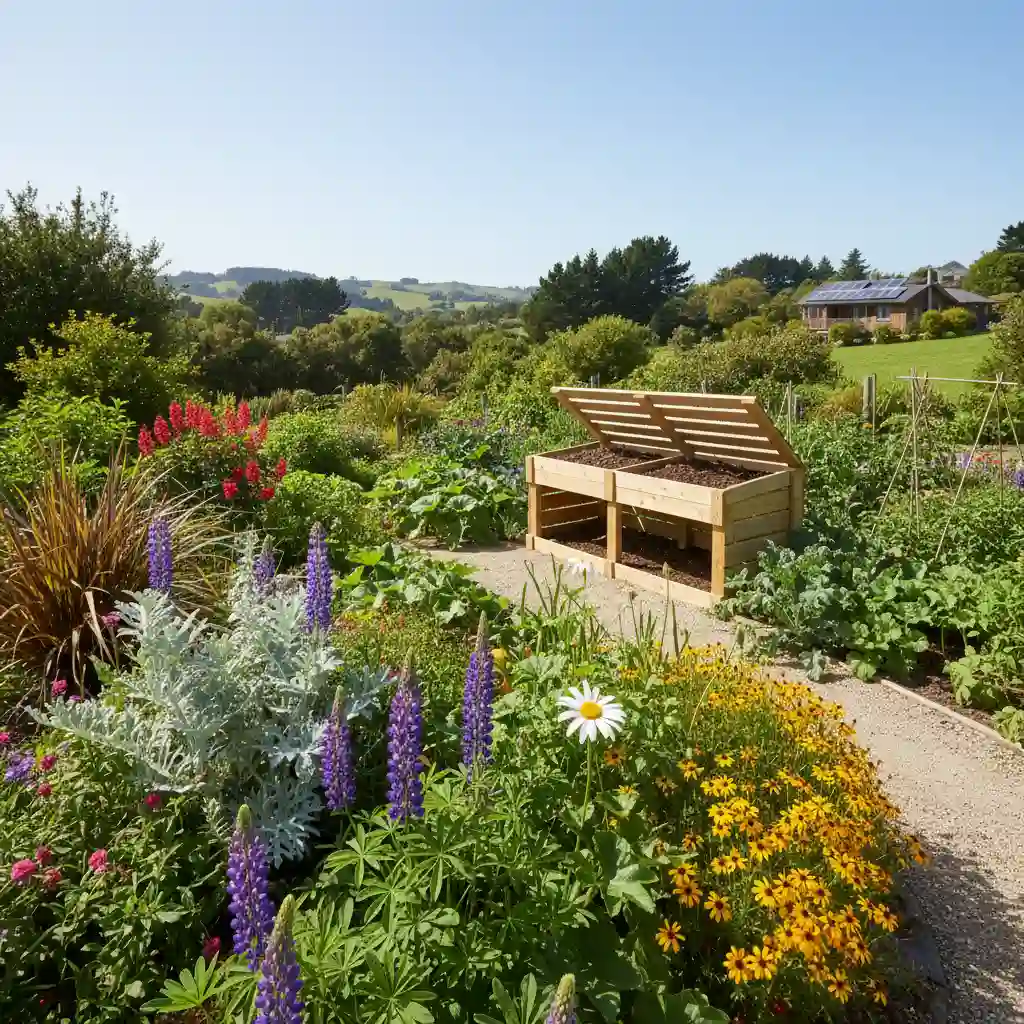
Table of Contents
Why Composting Matters in New Zealand
In a nation renowned for its natural beauty and commitment to sustainability, managing organic waste effectively is crucial. Composting isn’t just a garden chore; it’s a powerful tool for reducing landfill waste, enriching our unique New Zealand soils, and mitigating climate change.
Did you know?
Food and garden waste make up approximately 25-30% of household waste sent to landfills in New Zealand. When this organic matter breaks down anaerobically (without oxygen) in landfills, it produces methane, a greenhouse gas significantly more potent than carbon dioxide.
By diverting these materials through various sustainable composting methods for NZ gardens, we create a closed-loop system. We transform what would be a pollutant into a valuable resource, improving soil structure, water retention, and nutrient availability for our beloved native and introduced plants.
Understanding Your Composting Needs
Before diving into specific methods, consider what will work best for your unique New Zealand household and garden setup. Every composting journey is different!
- Space: Do you have a large backyard or a small urban balcony?
- Time Commitment: Are you looking for a hands-off approach or do you enjoy active gardening tasks?
- Waste Volume: How much kitchen and garden waste do you typically produce?
- Type of Waste: Are you only composting vegetable scraps, or do you want to include meat/dairy, pet waste, or larger garden debris?
- Desired Output: How quickly do you need finished compost?
Answering these questions will guide you towards the most suitable and sustainable composting method for your NZ garden.
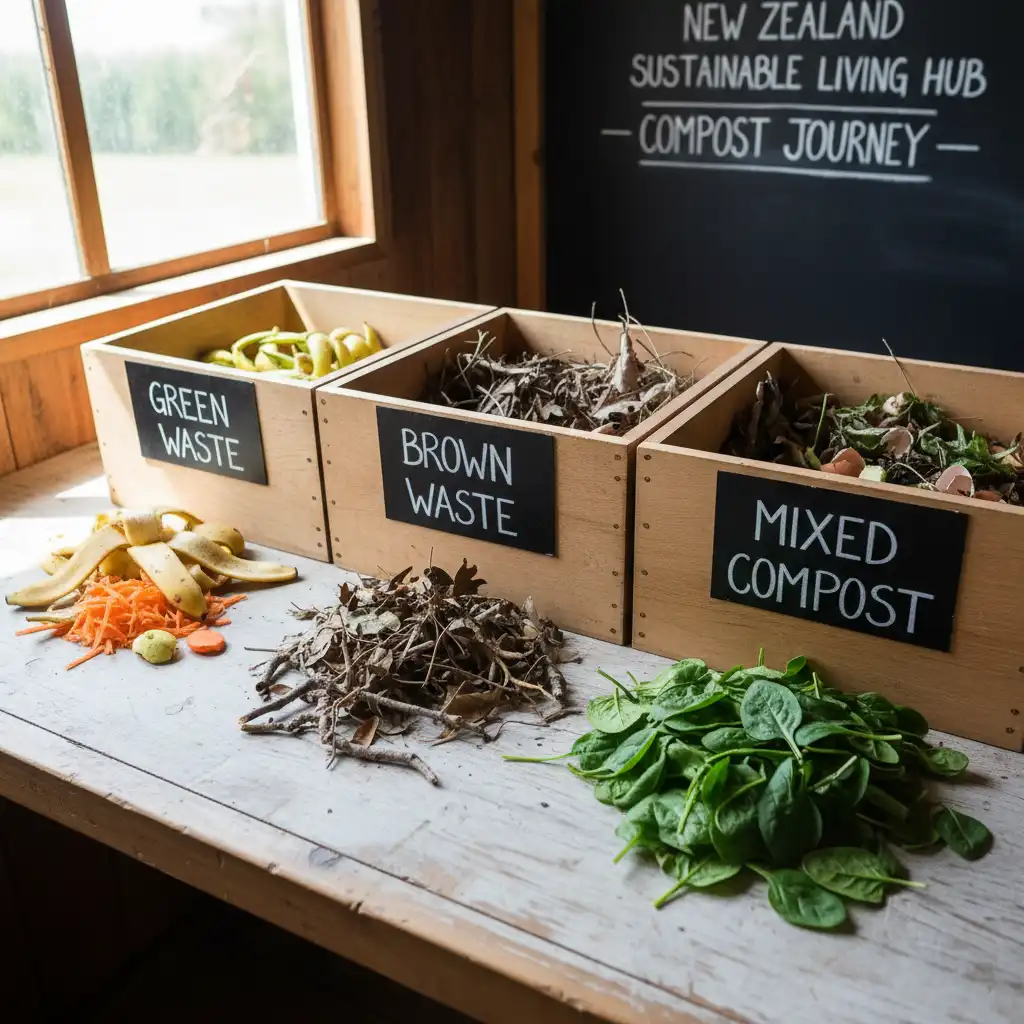
Popular Sustainable Composting Methods for NZ Gardens
Here’s a breakdown of effective and sustainable composting methods, each offering distinct advantages for different New Zealand gardeners.
1. Traditional Cold Composting
This is perhaps the most common and forgiving method, ideal for beginners or those with less time. It involves simply piling up organic materials and letting nature take its course.
- How it works: Layer ‘greens’ (nitrogen-rich: food scraps, grass clippings) and ‘browns’ (carbon-rich: dry leaves, wood chips, shredded paper) in a heap or bin.
- Pros: Low effort, suitable for most garden waste, less maintenance.
- Cons: Slower process (6-12 months), can attract pests if not managed, may not break down tougher materials.
- Best for: Gardeners with ample space, a steady supply of mixed garden waste, and patience.
2. Hot Composting (Thermophilic)
For the keen gardener wanting fast results, hot composting is an efficient method that generates high temperatures to speed up decomposition and kill weed seeds and pathogens.
- How it works: Requires a precise balance of ‘greens’ and ‘browns’ (roughly 1:2 ratio), consistent moisture, and regular turning to aerate. The pile should heat up to 55-65°C.
- Pros: Produces compost rapidly (weeks to 3 months), kills weed seeds and pathogens, handles larger volumes.
- Cons: More labour-intensive (turning), requires careful management of ingredients and moisture.
- Best for: Enthusiastic gardeners with significant organic waste, aiming for quick, sterile compost.
3. Worm Farming (Vermicomposting)
Vermicomposting uses specific composting worms (like tiger worms) to break down food scraps into nutrient-dense worm castings and liquid ‘worm tea’. It’s an excellent choice for urban dwellers or those with limited space.
- How it works: Worms are housed in a multi-tiered bin. Food scraps are added to the top tray, and worms migrate upwards, leaving rich castings behind.
- Pros: Perfect for kitchen scraps, produces high-quality fertiliser, low odour, compact.
- Cons: Can’t process large volumes of garden waste, sensitive to extreme temperatures, avoid meat/dairy/citrus.
- Best for: Urban gardeners, families with kitchen waste, those wanting premium fertiliser for potted plants or small gardens.
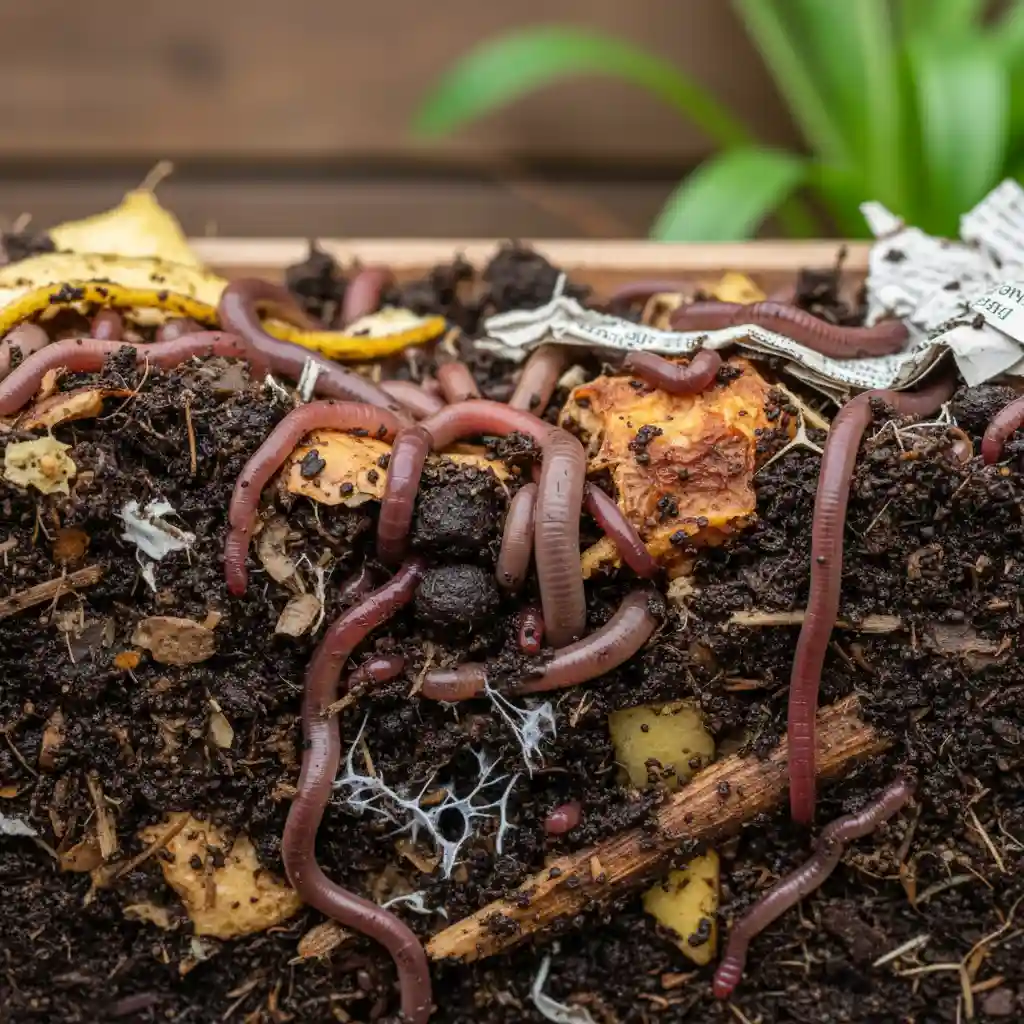
4. Bokashi Composting
Originating in Japan, Bokashi is an anaerobic fermentation process that can break down *all* food waste, including meat, dairy, and cooked foods. It’s a pre-composting method.
- How it works: Food scraps are layered in an airtight bin with Bokashi bran (a mix of microbes, often rice husks). The microbes ferment the food.
- Pros: Can process all food types, compact, minimal odour, quick fermentation.
- Cons: Requires an extra step (burying fermented waste), not a complete composting solution on its own.
- Best for: Those wanting to compost *all* food waste, especially in small spaces, followed by trench composting or adding to a traditional compost bin.
Troubleshooting Common Composting Issues
Even the most experienced composters face challenges. Here’s how to tackle common issues with your sustainable composting methods for NZ gardens:
Problem: Smelly Compost Pile
- Cause: Too much ‘greens’ (nitrogen) or not enough oxygen.
- Solution: Add more ‘browns’ (carbon-rich materials like dry leaves, shredded cardboard). Turn the pile to aerate it. Ensure good drainage.
Problem: Compost Pile Isn’t Breaking Down
- Cause: Lacks moisture, nitrogen, or aeration.
- Solution: Moisten the pile (should feel like a wrung-out sponge). Add more ‘greens’ like grass clippings or food scraps. Turn regularly.
Problem: Pests (Rodents, Flies)
- Cause: Exposed food scraps, strong odours, or improper balance.
- Solution: Bury food scraps deep within the pile. Cover fresh additions with a layer of ‘browns’. Consider a sealed compost bin. Avoid meat, dairy, and greasy foods in open piles.
Integrating Composting into Your NZ Lifestyle
Making composting a habit is easier than you think. Start small, be consistent, and enjoy the journey to a more sustainable home.
- Kitchen Caddy: Keep a small, lidded bin on your kitchen counter for daily scraps.
- Educate the Household: Ensure everyone knows what can and cannot go into your chosen composting system.
- Community Composting: If home composting isn’t feasible, look for local community gardens or council initiatives that accept organic waste.
- Use Your Compost: Regularly add finished compost to your garden beds, potted plants, or sprinkle on your lawn. Experience the benefits first-hand!
“Compost is the magic ingredient that connects us directly to the cycles of nature, transforming waste into life-giving soil.”
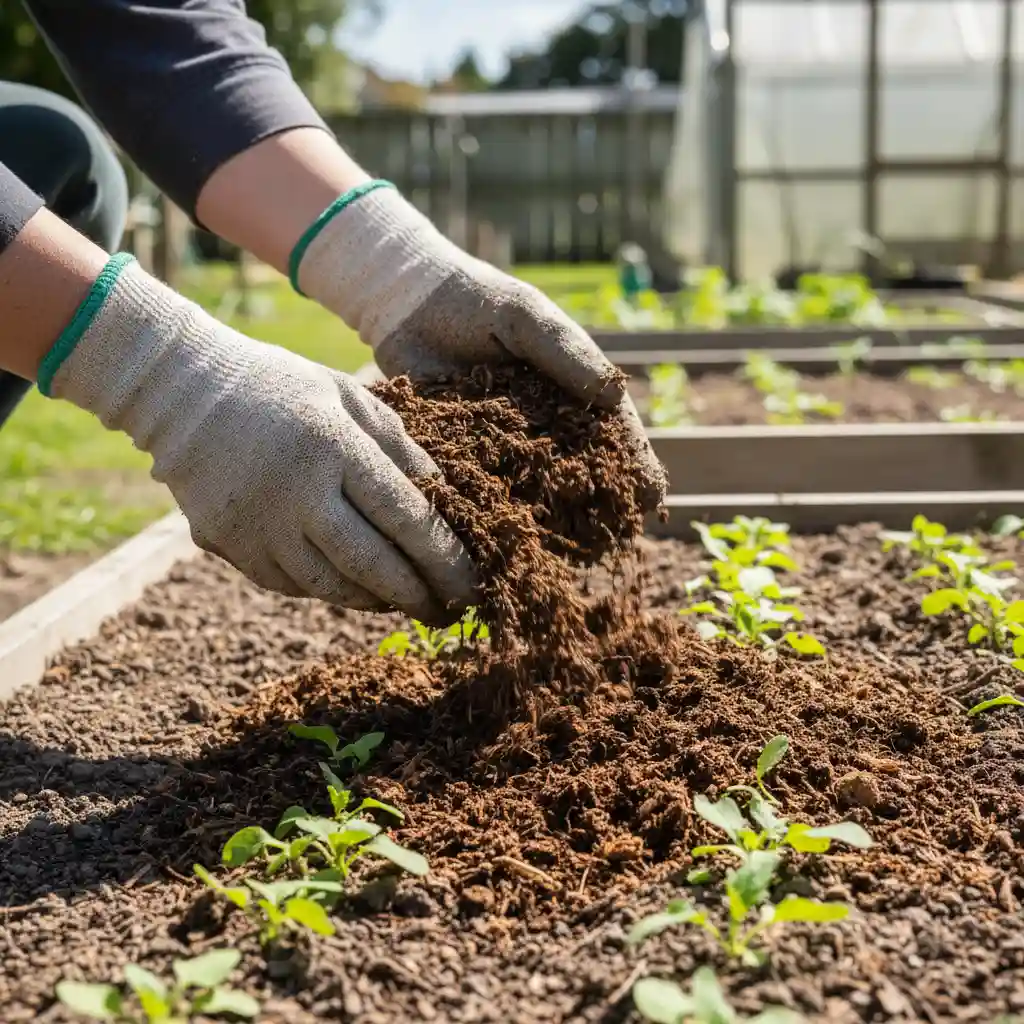
Conclusion
Choosing the right sustainable composting methods for NZ gardens is a significant step towards a greener, more resilient Aotearoa. Whether you opt for a traditional compost heap, a busy worm farm, or the innovative Bokashi system, every scrap diverted from landfill contributes to healthier soils and a healthier planet.
Embrace the power of composting and watch your garden – and your commitment to sustainability – flourish!
Frequently Asked Questions (FAQs)
What can I compost in my NZ garden?
Generally, you can compost most kitchen scraps (fruit & vegetable peels, coffee grounds, tea bags), garden waste (leaves, grass clippings, small twigs), and shredded paper/cardboard. Avoid meat, dairy, oily foods, and diseased plants in traditional compost unless using a Bokashi system.
How long does it take to make compost?
The time varies greatly by method. Hot composting can produce usable compost in as little as 3-4 weeks with ideal conditions and regular turning. Cold composting typically takes 6-12 months. Worm farms continuously produce castings and ‘worm tea’.
Can I compost weeds in my NZ garden?
Annual weeds without seeds can generally be composted. Perennial weeds (like couch grass or kikuyu) are best avoided or thoroughly dried/drowned before adding, as they can regrow. Hot composting can kill most weed seeds, but cold composting might spread them.
What’s the best compost bin for a small NZ urban garden?
For small urban gardens, a worm farm (vermicompost bin) or a Bokashi system followed by trench composting or adding to a small traditional bin are excellent choices. They are compact, efficient for kitchen scraps, and produce high-quality soil amendments.
References & Sources
- Ministry for the Environment. (n.d.). New Zealand waste data and modelling. Retrieved from mfe.govt.nz
- Gardening Australia. (n.d.). Compost Happens: A comprehensive guide. Retrieved from abc.net.au/gardening
- Sustainable Living Education Trust. (n.d.). Composting resources and workshops. Retrieved from sustainableliving.org.nz
- Worms R Us NZ. (n.d.). Beginner’s guide to worm farming in NZ. Retrieved from wormsrus.co.nz
